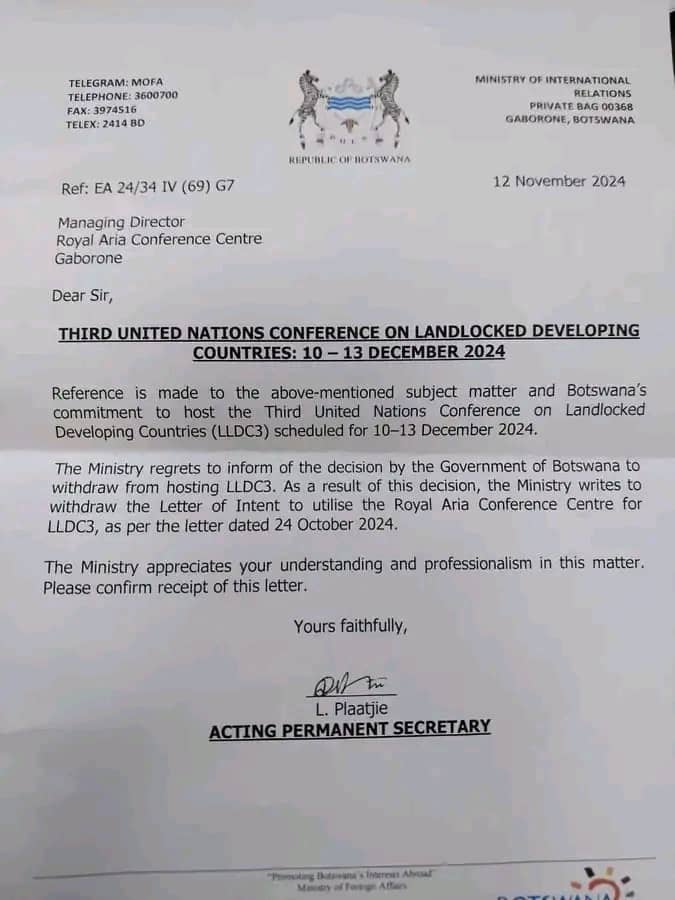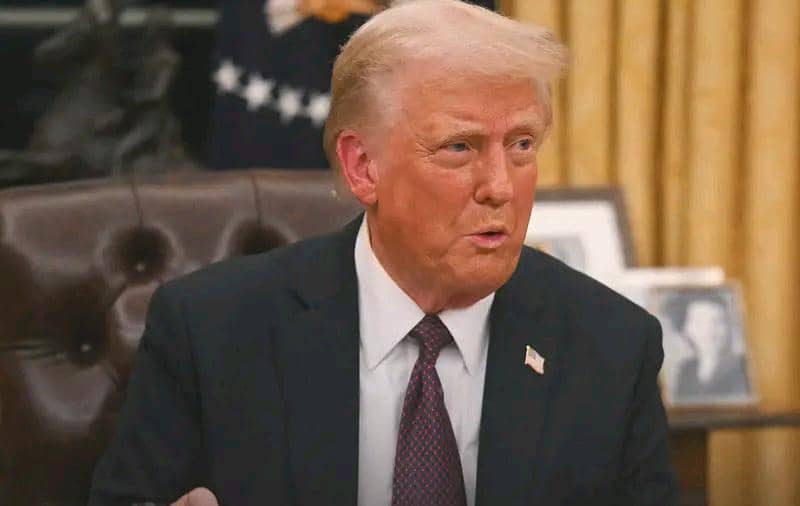By Burnett Munthali
In a move aimed at conserving national resources, the new president of Botswana has directed the government to withdraw from participation in the upcoming United Nations Conference on Landlocked Developing Countries. The decision underscores the president’s commitment to prioritizing financial prudence and refocusing Botswana’s limited resources on pressing domestic needs.
The UN Conference on Landlocked Developing Countries, which addresses unique challenges faced by landlocked nations—including limited access to global markets, transportation constraints, and economic isolation—was expected to provide Botswana with a platform for advocating solutions to these issues. However, Botswana’s withdrawal indicates a strategic shift by the new administration, which is prioritizing immediate resource-saving measures over international engagements.

In a statement, the president emphasized that Botswana must carefully weigh the benefits of international events against the costs, especially given the country’s economic challenges. By redirecting funds initially allocated for the conference, the administration aims to invest more in critical sectors like healthcare, education, and infrastructure, which are seen as immediate priorities for improving citizens’ quality of life.
This decision has sparked debate both domestically and internationally. Supporters argue that Botswana’s participation in international conferences has not always translated into direct, tangible benefits for its people and that the current government’s emphasis on financial responsibility is prudent. They believe that avoiding certain international commitments could free up resources to tackle more immediate, local challenges, including unemployment, economic diversification, and poverty alleviation.
On the other hand, critics argue that Botswana may lose valuable opportunities for collaboration, funding, and visibility on the world stage by not attending the conference. For landlocked countries, international alliances are often vital for addressing shared infrastructure, trade, and economic development challenges. Some warn that Botswana’s absence from the conference may impact its partnerships and influence within the international community.
This latest decision by the president is in line with his previous statements advocating for a “Botswana-first” approach, focused on maximizing resources to benefit the nation directly. The president has expressed a firm belief that Botswana’s interests are best served by channeling funds into projects with immediate local impact rather than global events.
As Botswana recalibrates its foreign policy and international engagements, it remains to be seen whether this approach will yield the hoped-for improvements in domestic welfare. The government’s emphasis on resource-saving is popular among many citizens, who hope to see a tangible difference in their daily lives as a result of these budgetary shifts.



